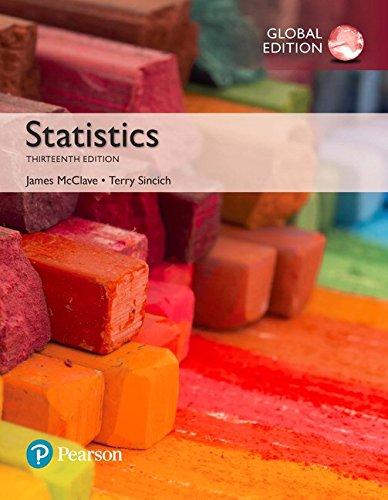Guilt in decision making. The effect of guilt emotion on how a decision maker focuses on the
Question:
Guilt in decision making. The effect of guilt emotion on how a decision maker focuses on the problem was investigated in the Jan. 2007 issue of the Journal of Behavioral Decision Making (see Exercise 1.31, p. 50). A total of 171 volunteer students participated in the experiment, where each was randomly assigned to one of three emotional states (guilt, anger, or neutral) through a reading/
writing task. Immediately after the task, the students were presented with a decision problem where the stated option has predominantly negative features (e.g., spending money on repairing a very old car). The results (number responding in each category) are summarized in the accompanying table. Suppose one of the 171 participants is selected at random.
Emotional State Choose Stated Option Do Not Choose Stated Option Totals Guilt 45 12 57 Anger 8 50 58 Neutral 7 49 56 Totals 60 111 171 Based on Gangemi, A., and Mancini, F. “Guilt and focusing in decision-making.” Journal of Behavioral Decision Making, Vol. 20, Jan. 2007 (Table 2).
a. Find the probability that the respondent is assigned to the guilty state.
b. Find the probability that the respondent chooses the stated option (repair the car).
c. Find the probability that the respondent is assigned to the guilty state and chooses the stated option.
d. Find the probability that the respondent is assigned to the guilty state or chooses the stated option.
Step by Step Answer:






